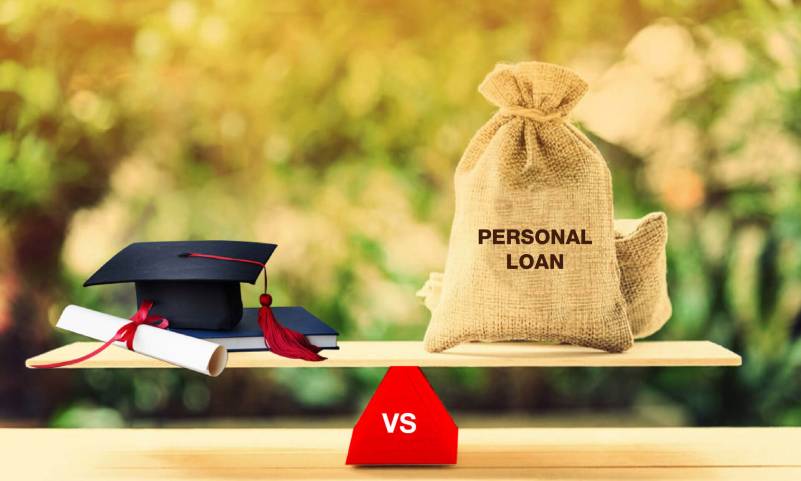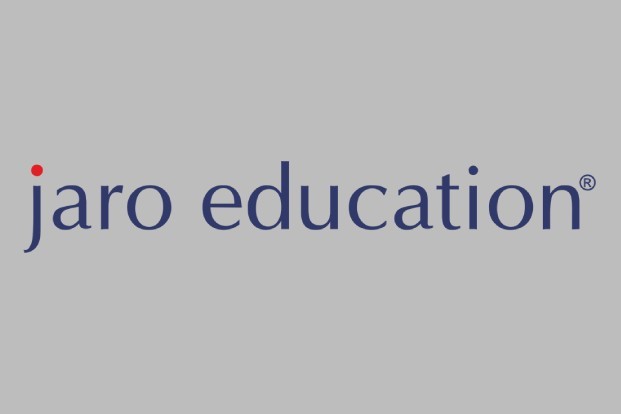When it comes to funding your education, two key options are available: personal loans and education loans. Choosing between them can feel like standing at a crossroads. Unsure which path leads to academic success and financial stability? To make an informed decision, let’s delve into the nuances of each option and explore which one aligns best with your educational aspirations.
Table of Contents
Personal Loans: Flexible Funding
Personal loans are a versatile financing option. No restrictions on the use of funds, be it tuition fees, living expenses, or study materials, give you control over your finances. Additionally, the application process is typically faster and involves less documentation compared to education loans. Here are some other factors you need to consider when opting for this option:
- Higher Interest Rates: Personal loans usually carry higher interest rates than education loans. This can translate to a substantial burden over the loan tenure, especially for larger amounts.
- Shorter Repayment Terms: Personal loan for education generally have shorter repayment periods, often ranging from 3 to 5 years. This translates to higher monthly EMIs, which can put additional strain on your post-education finances, but also help you become debt-free sooner.
- No Tax Benefits: Unlike education loans, personal loans don’t offer any tax deductions on interest payments or principal repayment. This further increases the overall cost of borrowing.
Education Loans: Tailored Support for Aspiring Minds
Designed specifically for educational purposes, education loans offer several advantages. These include:
- Lower Interest Rates: Education loans boast significantly lower interest rates compared to personal loans, effectively reducing the total cost of financing your studies. Government-backed education loans offer even lower rates, making them highly attractive.
- Longer Repayment Terms: Education loans come with extended repayment periods, often ranging from 5 to 15 years. This translates to lower monthly EMIs, providing breathing room during your initial career years.
- Tax Benefits: Education loans qualify for tax deductions on both interest and principal repayments, offering significant financial relief and reducing the overall burden.
- Additional Benefits: Certain education loans might offer additional benefits like moratorium periods during your studies and grace periods before repayment commences.
Choosing the Right Path: Balancing Your Needs
Carefully assess your financial circumstances before making a decision. Here are some factors to consider:
- Loan Amount: If you require a smaller amount for short-term studies, a personal loan for education might be suitable. However, for larger loans and longer academic pursuits, an education loan becomes more advantageous due to its lower interest rates and tax benefits.
- Financial Future: Consider your expected income and repayment capabilities after graduation. Education loans with lower EMIs might be preferred if starting your career with higher monthly payments seems challenging.
- Career Path: If your chosen field promises high-paying opportunities, you can potentially manage higher personal loan EMIs. However, for careers with lower starting salaries, education loans provide greater financial flexibility.
- Government Schemes: Explore government-backed education loan schemes offering subsidised interest rates, making them even more attractive compared to personal loans for education.
Seek Guidance
Navigating the financial intricacies of higher education can be complex. Consult with a financial advisor or education loan counsellor for personalised guidance based on your preferences. They can help you assess your needs, compare loan options, and choose the path that best navigates your academic journey towards a secure future.
Ultimately, the choice between a personal loan and an education loan boils down to individual circumstances and aspirations. Weigh the pros and cons of each option, considering your financial situation, academic goals, and career prospects.











